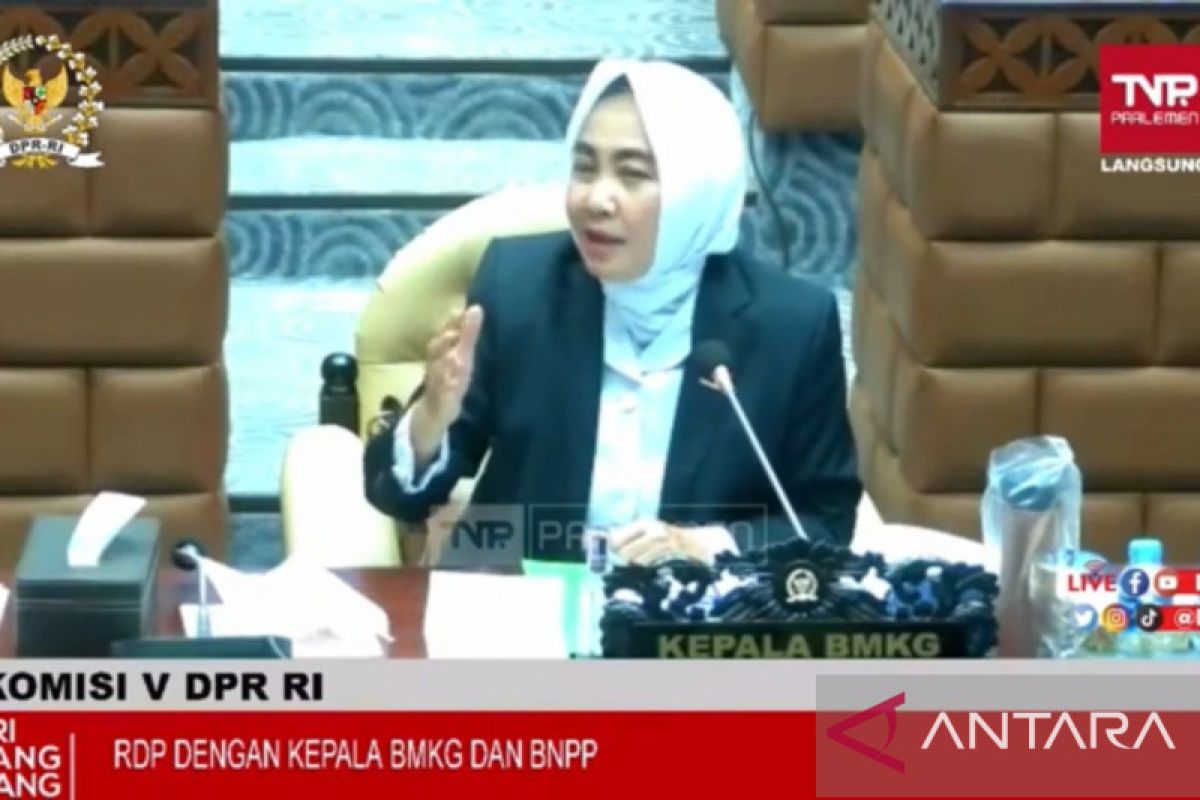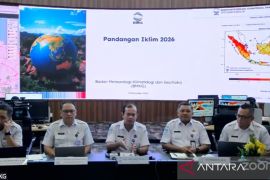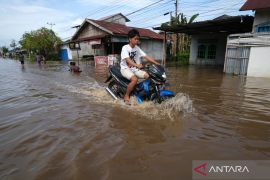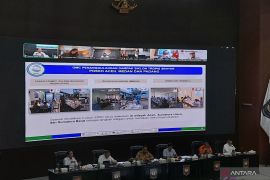Hence, it is urgent for all countries to strengthen their greenhouse gas mitigation attempts to suppress the increasing rate of global warming.Jakarta (ANTARA) - An increase in surface air temperature has been more evident in the western and central regions of Indonesia, the Meteorology, Climatology, and Geophysics Agency (BMKG) has reported.
The eastern part of Sumatra Island, northern part of Java Island, northern part of Sulawesi Island, as well as Kalimantan Island have experienced a rise in temperature of more than 0.3 degrees Celsius per decade, Head of the BMKG Dwikorita Karnawati noted in a statement received here on Thursday.
The data is based on the results of measurements conducted by 92 BMKG stations over the past 40 years.
The highest rate of temperature increase of 0.5 degrees Celsius per decade was recorded by the Aji Pangeran Tumenggung Pranoto Meteorological Station in Samarinda City, East Kalimantan Province.
Meanwhile, in Jakarta and its surrounding areas, the temperature increased at a rate of 0.40–0.47 degrees Celsius per decade.
"In Indonesia, the hottest year was 2016, which was 0.8 degrees Celsius higher than the (temperature during the) benchmark period of 1981–2010,” the BMKG head stated.
The second- and the third-hottest years were 2020 and 2019, when temperatures rose 0.7 degrees Celsius and 0.6 degrees Celsius, respectively, compared to the benchmark period, she added.
The BMKG’s analysis was in line with the World Meteorological Agency’s (WMO’s) State of the Global Climate 2021 report released in May 2022, she said.
The WMO found that as of the end of 2021, the global surface air temperature increased by 1.11 degrees Celsius compared to the global temperature in the pre-industrial era (1850–1900). It noted that 2021 was the third-warmest year after 2016 and 2020.
The agency also reported that the past decade (2011–2020) was the hottest so far, and the spike in temperatures in 2016 was influenced by a strong El Nino phenomenon.
Head of BMKG’s Center for Applied Climate Services, Ardhasena Sopaheluwakan, said that the study conducted by the Intergovernmental Panel on Climate Change (IPCC) found that global warming would not occur without the influence of human activities, also known as anthropogenic influences.
The WMO noted that there is a 20-percent chance that the increase in global surface air temperature within the next five years would exceed the Paris Agreement threshold of 1.5 degrees Celsius, he added.
"Hence, it is urgent for all countries to strengthen their greenhouse gas mitigation attempts to suppress the increasing rate of global warming," he added.
Related news: BMKG warns of potential hydrometeorological disasters
Related news: BKMG discovers five hotspots in Batam
Translator: Devi Ramadhan, Uyu Liman
Editor: Rahmad Nasution
Copyright © ANTARA 2022












